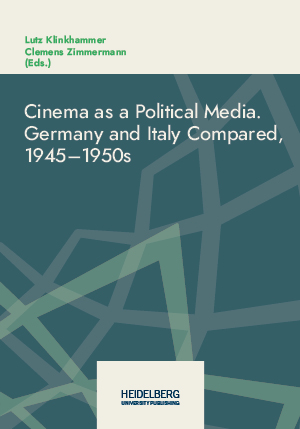How to Cite
Identifiers (Book)
Published
Narrative Patterns in Anti-Fascist American, Soviet and European Films (1940–1950)
After a brief period of confrontation in cinemas of post-war Germany, neither the German war crimes nor the Holocaust committed against European Jews nor the Nazi terror against politically dissenting people were present in a notable way. This concerned not only German movies, but also the cinematic interpretations of war and National Socialism by the Allies and other European countries, which could only be seen on German screens very sparsely, with a long delay or in their statement defused. Going out from this systematic de-thematizing of German cruelties the presentation will focus on the question which cinematic interpretations of Nazism circulated in the realm of the US, the Soviet Union and Europe’s liberated countries, and to work out general narrative patterns. Surprisingly, despite the ideological differences and different war experiences of the producing countries, the narratives of decency and resistance are similar. They form – so the thesis presented here – a dispositif whose strategic function it was to secure the alliance against National Socialism.







